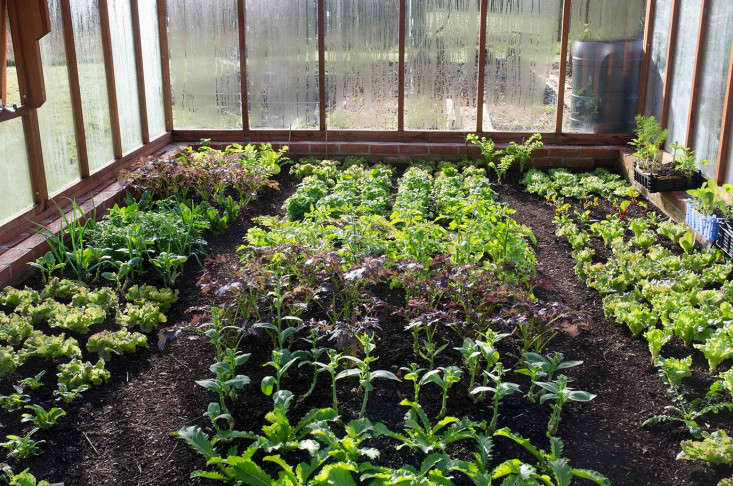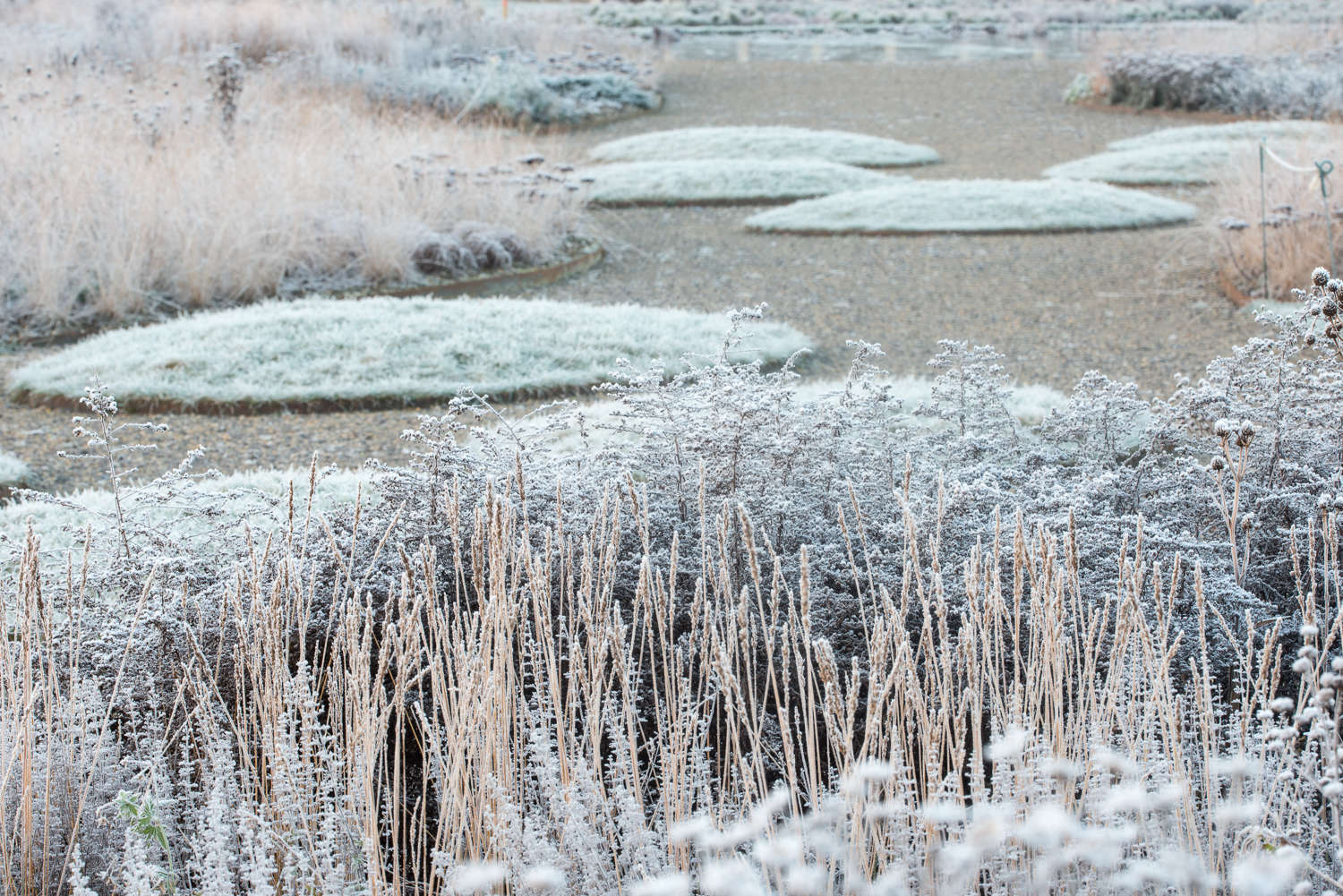Why do people dig? I’m not at all sure after reading Charles Dowding’s book Veg Journal. His ideas–mounds of beds with no edging, paths of soil instead of trimmed grass–involve less heavy toil and less expense. However, his manifesto is not for idlers. As you hoe the weed seedlings out of your beds, it may be useful to keep repeating to yourself: “Little and often.”
Photographs by Heather Edwards.

Above: Charles Dowding’s acre or so in Somerset has more in common with a large garden than a small farm. By maximizing space in each growing area Charles reliably produces salad and other vegetables for local shops and restaurants while having plenty left over for himself. And all without using machinery. Charles’s No-Dig courses are always booked up because the concept sounds too good to be true. Is it?

Above: “My advice is simple,” says Charles. “Disturb your soil as little as possible.” And mind the cooperative goods inside: “Soil is alive with helpful bacteria, fungi, worms, and beetles,” he says. “They appreciate being fed with composted organic matter on a regular basis.”

Above: One to two inches of mulch are spread over all the beds in late autumn (though it can be applied at any time of year). Plants get a head start in undug soil in spring because it has been fed and left alone. Dug soil does not quickly recover from the disturbance of winter digging. “Fertility is enhanced by an increase in undisturbed soil life,” says Charles.
Still inclined to dig? Consider this: disturbing the soil encourages weed seeds to germinate. To deal with weeds, Charles says to clear the ground and then just pick weeds when you see them, either by hand or with a hoe. The garden shouldn’t get to the point where the soil needs more than a light skimming with a hoe.
Charles is justly proud of his clean soil: weeds can be such a waste of human time and plant energy. “Having fewer weeds,” says Charles, “means I can manage a larger garden and look after the soil more carefully.”

Above: A blanket of healthy, nutritious soil means less watering is needed. In late summer, Charles’s salad leaves need watering but not more than every three days or so. This less frequent but more thorough drenching discourages slugs and fungal diseases. New plants need watering only once or twice a week to encourage their roots to grow downward.
Charles waters before sowing seeds, not after. For young plants, he uses a dibber to create a shallow well around the stem to allow watering in just the right place: “Precise watering of sowings and plantings saves much water and means fewer weeds grow.”

Above: Sowing seeds at the right time also gives plants a better chance of survival. They need to be the right size when planted, so they’re strong enough to shrug off predators. Beans sown outdoors too early will struggle, while beans direct-seeded in warm weather will develop larger, less slug-attractive leaves more quickly.
Charles sows vulnerable seeds undercover, such as vegetables with tasty young shoots. For instance, the small leaves of beetroot are a treat for birds and wood lice so they’re best kept under wraps.
Charles Dowding’s Veg Journal is £14.99 from Frances Lincoln Publishers.
For more soil growing advice see 12 Tips for Growing Cutting Flowers from Barberry Hill Farm.
Looking for an attractive compost solution? See Steal This Look: Elegant French Country Compost Bins.










Have a Question or Comment About This Post?
Join the conversation